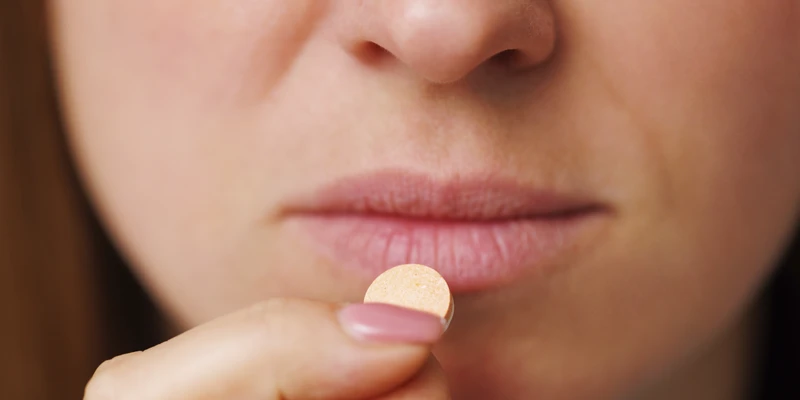Imagine taking a substance without knowing exactly what’s in it. It could trigger an unpredictable reaction, alter your mind, and even put your life at risk within minutes. This is the reality of taking synthetic drugs.
Disguised as harmless chemicals, synthetic drugs are dangerous substances. The effects of synthetic drugs can range from severe paranoia to life-threatening overdose. If someone tells you that these types of drugs are safe, think again.
In this blog post, read on if you want to learn more about its side and long-term effects and how we can fight and treat synthetic drug addiction.

What Are Synthetic Drugs?
Synthetic drugs, which are commonly known as designer drugs, are chemically engineered substances designed to mimic the effects of natural drugs like cannabis, cocaine, and opioids. These dangerous substances are typically manufactured in underground laboratories and are more accessible alternatives to their natural counterparts.
Considering that these drugs are constantly being modified to evade legal regulations, their chemical composition can be unpredictable, and their adverse effects are hazardous. Unlike regulated medications, these synthetic drugs are often not subject to consistent quality control, and their potency can vary.
Usually, they’re marketed under various street names, such as Spice, K2, or bath salts, which have become popular among people seeking a potent high.
What’s more alarming is that many users of these substances are not aware of the potential physical and psychological consequences that can result from synthetic drug use.
Side Effects of Synthetic Drugs
The side effects of synthetic drugs can vary from one person to another. It involves both physical and psychological side effects as well as some potential long-term consequences.
Physical Side Effects
Generally, the physical side effects of synthetic drugs may include rapid heart rate, high blood pressure, nausea, vomiting, and even excessive sweating.
More specifically, synthetic stimulants can cause severe dehydration and high body temperature, while synthetic cannabinoids and hallucinogens are known to cause seizures, breathing difficulties, and extreme agitation.
Furthermore, one of the most concerning side effects of synthetic drug abuse is on the cardiovascular system, which increases the risk of many users having fatal heart attacks. In severe cases, synthetic drug use can even result in comatose or death due to overdose.
Psychological Side Effects
Many synthetic drugs can change your brain chemistry, which can lead to severe mood swings, anxiety, aggression, delusions, and hallucinations.
For instance, synthetic cannabinoids like Spice or K2 are notorious for causing paranoia and psychosis, which may require hospitalisation. Similarly, synthetic cathinone or bath salts can cause severe agitation, suicidal thoughts, and even homicidal tendencies.
Long-Term Effects
The long-term effects of synthetic drug use are associated with permanent damage to the brain and body. Depending on the type of drug, chronic users may develop severe anxiety disorders, depression, and even schizophrenia-like symptoms.
In addition, consuming synthetic drugs for a long period can put someone at risk of developing addiction, respiratory failure, and cognitive impairment.

Common Types of Synthetic Drugs
Various types of synthetic drugs are being marketed and are prevalent across the globe. Some of them include:
Spice or K2
Spice, also known as K2, is a synthetic cannabinoid that mimics the effects of tetrahydrocannabinol (THC) and is the psychoactive component of cannabis. However, unlike its natural counterpart, synthetic marijuana or cannabis is more potent. Some studies have shown users reporting extreme paranoia and seizures after using this drug.
Bath Salts
Bath salts are synthetic cathinones that are linked to severe agitation, paranoia, and hallucinations. These substances are similar to methamphetamine, which can cause aggression and other violent behaviours. Some people experience intense cravings and withdrawal symptoms that make bath salts highly addictive.
Synthetic Opioids
Synthetic opioids such as fentanyl are some of the most lethal substances on the market. These synthetic drugs can lead to a high risk of fatal overdose and are more potent than natural opioids like heroin and morphine. The National Institute on Drug Abuse has reported that synthetic drugs, including many opioids, are responsible for a significant increase in overdose deaths worldwide.
Synthetic Hallucinogens
Synthetic hallucinogens such as N-Bomb are substances that can mimic the effects of lysergic acid diethylamide (LSD) and other psychedelic drugs but are much more potent and dangerous because they can lead to extreme psychotic symptoms and violent behaviours.
Why Do People Use Synthetic Drugs?
People tend to use synthetic drugs for different reasons, and they are not aware of the dangers they can bring to one’s life. For instance, some people use these drugs believing that they are safer or less detectable in drug tests. In contrast, others use them because of curiosity, peer pressure, or even for self-medication purposes to escape stress, anxiety, and depression.
However, many of us don’t know the health risks associated with synthetic drug use, including addiction, psychosis, and even death because of its constantly changing chemical formulation.

Treatment For Synthetic Drug Addiction
Similar to other substance abuse cases, people with synthetic drug addiction are treated using a combination of approaches, which may include:
Detox
The first step in overcoming synthetic drug addiction is detoxification. Considering that these drugs, like any others, can cause severe withdrawal symptoms, medical supervision is important during this process. Detox is a treatment that helps your body eliminate toxins while managing symptoms like anxiety, depression, and other physical discomforts.
Residential Rehab
Residential care in an addiction treatment centre provides a structured environment where you can focus entirely on your recovery. It involves therapies, counselling, and support groups where you can learn how to manage your cravings, address underlying mental health issues associated with addiction, and develop healthier coping mechanisms. Generally, synthetic drug addiction treatment in rehab helps you regain control over your life.
Aftercare
Synthetic substance use recovery doesn’t end after rehab. Continue therapies, outpatient programmes, and relapse prevention strategies can help you maintain sobriety and are essential for long-term success.
Begin Your Healing at Sierra Recovery
Synthetic drug addiction doesn’t care who we are, where we’re from, or what dreams we have; it strips away our choices until there’s nothing left to us but dependency and chaos.
But no matter how deeply you feel trapped, you still have the power to turn the page. Recovery is not about erasing your past, but it’s about reclaiming your future.
If you’re ready to break free from the grip of this addiction, allow us here at Sierra Recovery to help you create your new chapter.






